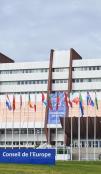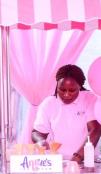Scaling up efforts to ensure access to clean water and sanitation in Kiribati

This collaboration comes at a time when access to safe water, sanitation and hygienic conditions are essential for protecting human health during outreaks of infectious disease including the COVID-19.
In the Line and Phoenix Islands, about one in every two children do not have access to basic sanitation while also grappling with the on-going impacts of climate change. With the EUR 6.25 million support provided by the EU, UNICEF will work together with the Government of Kiribati to raise awareness of good water, sanitation and hygiene practices, deliver services for improved sanitation and hygiene through installation and repair of facilities as well as strengthen community and household resilience.
“The EU assistance of EUR 6.25 M provided today for Kiribati will improve access to water, sanitation and hygiene, a critical sector in the context of the COVID-19 outbreak. This EU assistance aligns with the priorities of Kiribati, as expressed in Kiribati Vision 20, to promote the outer islands of the Line Group. This EU assistance, to be implemented by UNICEF, also shows a continued commitment to the multilateral system, under the umbrella of the United Nations,’’ said the Ambassador of the European Union for the Pacific, HE Sujiro Seam.

This 4.5 year partnership will build resilience for about 11,000 I-Kiribati, with approximately 4,000 of these children attending 12 schools and 28 early childhood care and education centres.
“Access to proper sanitation and hygiene is critical for children’s right to health and wellbeing. We thank the European Union for this support, and together with the Government of Kiribati, communities and partners such as the Pacific Community, we will ensure that those children living in some of the most remote areas globally will have access to clean water, sanitation and better hygiene,” said UNICEF Pacific Representative, Sheldon Yett.
UNICEF will be working closely with the Government of Kiribati to address water, sanitation and hygiene issues among the growing population in the Line Islands. Through addressing sanitation and hygiene with a focus on resilience and gender, this project will assist Kiribati in achieving its strategic goal of sustainable development.
“In the expectations and voices of the people of the Line Group, who are the center and key beneficiaries of this project, we look forward to have a resilient water, sanitation and hygiene (WASH) infrastructure that can stand the impacts of climate change. With the support of the newly introduced Rebate System, we are committed to implement a household-based WASH infrastructure that complies with the required and quality standards. While these improve our access to adequate and equitable sanitation and hygiene that will elevate our health and livelihoods standards, they also promote our sense of ownership and contribution to the project,” said the Kiribati High Commissioner to Fiji, H.E. David A. Teaabo.
ENDS
For more information, please contact:
Zubnah Khan, UNICEF Pacific, Tel: +679 7157586, zukhan@unicef.org
Mohammed Nazeem Kasim, European Union, Tel: +679 8672255, Mohammed-Nazeem.KASIM@eeas.europa.eu





